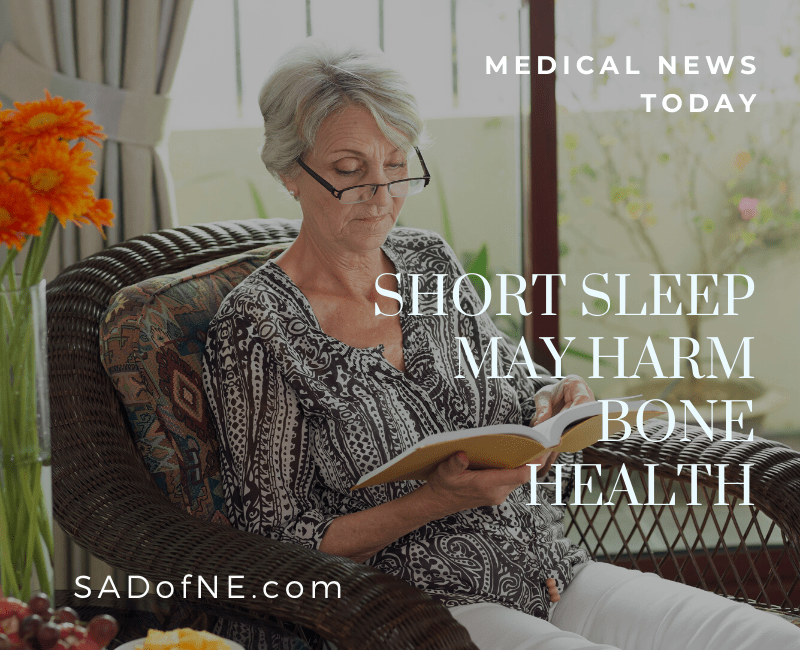Insomnia, Disrupted Sleep Linked to Severe COVID-19
Original Article Posted by Sleep Review Staff | Mar 23, 2021 | Insomnia, Sleep & the Body

Insomnia, disrupted sleep, and daily burnout are linked to a heightened risk of not only becoming infected with coronavirus, but also having more severe disease and a longer recovery period, suggests an international study of healthcare workers, published in the online journal BMJ Nutrition Prevention & Health.
Every 1-hour increase in the amount of time spent asleep at night was associated with 12% lower odds of becoming infected with COVID-19, the findings indicate.
Disrupted/insufficient sleep and work burnout have been linked to a heightened risk of viral and bacterial infections, but it’s not clear if these are also risk factors for COVID-19, say the researchers.
To explore this further, they drew on the responses to an online survey for healthcare workers repeatedly exposed to patients with COVID-19 infection, such as those working in emergency or intensive care, and so at heightened risk of becoming infected themselves.
The survey ran from 17 July to 25 September 2020, and was open to healthcare workers in France, Germany, Italy, Spain, the UK, and the USA.
Respondents provided personal details on lifestyle, health, and use of prescription meds and dietary supplements plus information on the amount of sleep they got at night and in daytime naps over the preceding year; any sleep problems; burnout from work; and workplace exposure to COVID-19 infection.
Some 2884 healthcare workers responded, 568 of whom had COVID-19, ascertained either by self-reported diagnostic symptoms and/or a positive swab test result.
Infection severity was defined as: very mild – no or hardly any symptoms; mild – fever with or without cough, requiring no treatment; moderate – fever, respiratory symptoms and/or pneumonia; severe – breathing difficulties and low oxygen saturation; and critical – respiratory failure requiring mechanical assistance and intensive care.
The amount of reported nightly sleep averaged under 7 hours, but more than 6. After accounting for potentially influential factors, every extra hour of sleep at night was associated with 12% lower odds of COVID-19 infection.
But an extra hour acquired in daytime napping was associated with 6% higher odds, although this association varied by country.
Around 1 in 4 (137;24%) of those with COVID-19 reported difficulties sleeping at night compared with around 1 in 5 (21%;495) of those without the infection.
And 1 in 20 (5%;28) of those with COVID-19 said they had 3 or more sleep problems, including difficulties falling asleep, staying asleep, or needing to use sleeping pills on 3 or more nights of the week, compared with 65 (3%) of those without the infection.
Compared with those who had no sleep problems, those with three had 88% greater odds of COVID-19 infection.
Proportionally more of those with COVID-19 reported daily burnout than did those without the infection: 31 (5.5%) compared with 71 (3%).
Compared with those who didn’t report any burnout, those for whom this was a daily occurrence were more than twice as likely to have COVID-19. Similarly, these respondents were also around 3 times as likely to say that their infection was severe and that they needed a longer recovery period.
These findings held true, irrespective of the frequency of COVID-19 workplace exposure.
This is an observational study, and as such, can’t establish cause. And the researchers acknowledge several limitations to their study.
These include subjective assessment of exposure levels, sleep issues, and infection severity, all of which may have been incorrectly remembered. And the sample included only cases of very mild to moderately severe COVID-19.
By way of an explanation for their findings, the researchers note: “The mechanism underlying these associations remains unclear, but it has been hypothesized that lack of sleep and sleep disorders may adversely influence the immune system by increasing proinflammatory cytokines and histamines.”
And they point to studies linking burnout to a heightened risk of colds and flu as well as long term conditions, such as diabetes, cardiovascular disease, musculoskeletal disease and death from all causes.
“These studies have suggested that burnout may directly or indirectly predict illnesses by occupational stress impairing the immune system and changing cortisol levels,” they write.
And they conclude:”We found that lack of sleep at night, severe sleep problems and high level of burnout may be risk factors for COVID-19 in frontline [healthcare workers]. Our results highlight the importance of healthcare professionals’ well-being during the pandemic.”


